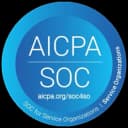Medical Coding Audits: Benefits for Healthcare Practices
July 19, 2025


Medical coding audits are essential to the smooth functioning of healthcare practices. Regular audits are crucial to finding coding and documentation errors, thus reducing claim denials and ensuring timely reimbursements. They confirm accuracy, compliance and financial stability that reflects positively on a hospital’s reputation. This article explains how medical coding audits are essential to the healthcare system and the numerous ways in which hospitals and private practices benefit from regular medical billing and coding audits.
Medical Coding Audit - What it is & its types?
Medical coding audits are conducted frequently to ensure that hospitals and other healthcare providers adhere to the regulations laid down by systems like the CMS for medical coding. Audits are conducted to check for documentation and coding errors, healthcare compliance and billing errors. Regular audits help pinpoint and correct such errors, thus ensuring optimum patient care and transparent billing and coding practices. These audits can be conducted internally by coding and compliance departments or externally by specialized agencies. The basic goal is to ensure that the respective hospitals and private practices adhere to the healthcare standards set by regulatory bodies. Hospitals must conduct these healthcare audits occasionally to ensure smooth running. Depending on their functionality, different kinds of audits are carried out. Let’s take a look at some of them.
Types of Medical Coding Audits
Medical coding audits are carried out in different capacities based on their purpose. Internal coding audits are cost-effective and are conducted by auditors familiar with their organization’s work environment. For optimized results, experts recommend conducting a mix of both internal and external medical coding audits.
Internal Audits: Internal audits are conducted by in-house medical coding audit teams. It is a cost-effective strategy and it saves time too as auditors are familiar with the work culture and don’t have to devote time to understand it. The benefits of conducting medical coding audits internally are numerous. They are
- Time and cost-efficient
- They can be conducted frequently
- They help facilities anticipate coding and documentation errors and contribute to the smooth functioning of healthcare revenue cycles.
Internal audit services for healthcare providers are carried out by expert medical coders and are essential to ensure that hospitals comply with medical rules and regulations..
External audits: Hospitals hire professionals to carry out external coding audits as it helps in medical coding error detection that may have been missed during internal coding audits. External auditing agencies have well-trained personnel who keep themselves updated about the latest modifications established by organizations like the CMS and AMA. They employ medical coding audit tools to fast track the process to produce accurate results within a stipulated time period. Since their sole function is to conduct medical billing and coding audits, external auditing agencies conduct all kinds of medical audits which include medicare coding audits, revenue cycle management audits, etc. Employing a mix of both internal and external coding audits is recommended by experts in the field.
Prospective (pre-billing) audits: Prospective audits are done before insurance claims are submitted by hospitals and private practices. They help detect coding and documentation errors, reduce claim denials and improve the quality of the revenue cycle of hospitals.
Retrospective (post-billing) audits: These are conducted once claims have been submitted. Retrospective audits help in identifying coding error patterns and make the necessary improvements to coding and documentation strategies.
The medical coding audits ensure coding compliance in healthcare, thus contributing to positive changes in medical coding and documentation strategies. It leads to myriad benefits, some of which are listed below.
Key Benefits of Medical Coding Audits
Improved Accuracy
Medical coding is constantly evolving, with new diseases and diagnoses being discovered frequently. To keep up with these developments, authoritative bodies like the CMS and ADA revise their regulations. Medical coding audits allow hospitals to keep up with these updates and ensure coding compliance. Regular coding audits have paved the way for improved accuracy in medical coding, thus facilitating optimum care for incoming patients. By ensuring that every service is documented and billed correctly, healthcare practices can mitigate financial losses associated with inaccurate coding
Enhanced Documentation
Accurate documentation is a crucial component in ensuring timely reimbursement and regulatory compliance in healthcare. Audits help revise any shortcomings in a hospital’s existing documentation strategy and make room for appropriate improvements to support accurate coding. Medical coding audits ensure that patients’ medical records are complete and in compliance with the regulations. Better documentation facilitates better communication among health practitioners and insurance providers, thus leaving little or no room for insurance claim errors.
Fraud Prevention
Coding auditing strategies are devised to detect fraudulent billing practices, thus protecting healthcare services from potential legal penalties, thus helping to maintain the integrity of these services. Such proactive measures not only ensure correct billing and documentation but also helps in establishing a positive trust relationship between hospitals and patients.
Financial Protection
Revenue loss due to incorrect coding and documentation is the biggest challenge faced by healthcare facilities today. The American Medical Association estimates that coding errors cost the healthcare system $36 Billion loss annually. Hence, conducting regular internal and external medical coding audits is mandatory. These audits ensure a healthy revenue billing cycle which in turn helps hospitals maintain their financial stability.
Compliance Assurance
In the healthcare industry, complying with regulatory requirements is non-negotiable. Associations like the AMA, CMS, ADA have set rigorous standards for the healthcare industry. Conducting regular audits allows hospitals to keep in line with the healthcare regulations and ensures compliance. This maintains trust with the regulatory bodies.
Risk Mitigation
Medical coding audits help healthcare providers mitigate the risks associated with incorrect coding and billing. Auditing helps them identify potential issues before they escalate into larger ones, thus enabling hospitals and private practices navigate compliance challenges effectively.
Quality Improvement
The healthcare industry is constantly evolving and so are the regulations. By evaluating coding, documentation and billing processes, hospitals get to improve their existing strategies and employ corrective measures for errors. A commitment to quality upholds the trust of patients and regulatory bodies in the hospital’s administrative practices. It also ensures optimum patient care.
Best Practices for Implementing Medical Coding Audits
To maximize the benefits of medical coding audits, healthcare providers should adopt several best practices:
Establish a Regular Auditing Schedule
Frequent auditing helps in identifying an correcting any drawbacks in the current system. Most auditors involve automated coding systems to rectify consistent coding and billing errors. Medical coding software like Combinehealth helps in expediting the billing process by assigning appropriate codes by sifting through thousands of medical reports. This helps save time and manpower, increases the accuracy of coding and documentation and facilitates a smooth insurance claim process.
Leverage Technology
The recent times are a witness to revolutionary technological advancements in the medical field. AI powered medical coding software is one of them. Healthcare providers must employ effective coding software to keep up with these developments. This ensures an efficient auditing process, helps streamline coding and documentation strategies and improves accuracy.
Invest in Staff Training
Equipping medical staff with the necessary training ensures quality control in medical coding. Through internal and external audits, healthcare providers can take account of where they lack and through continuous feedback, understand medical coding and documentation challenges. The only way to combat these challenges is to conduct timely training sessions for medical staff and evaluate their knowledge. This fosters a culture of accuracy in the organization.
Conclusion
Medical coding audits are a non-negotiable aspect of the healthcare system. In addition to helping healthcare providers correct medical codes and documentation, medical audits also help them identify the shortcomings in their medical strategies and help streamline them by suggesting the correct strategies for efficiency. Understanding the medical coding audit process, and how they fit into the healthcare system helps medical professionals in hospitals and private practices adhere to the healthcare regulations. It ensures perfection in patient care. Employing technology helps mitigate the risks that accompany incorrect coding practices, thus improving the quality of care and treatment.
FAQs
What are the primary benefits of medical coding audits for healthcare providers?
Medical coding audits help hospitals identify coding errors and possible documentation errors by employing several medical coding and auditing tools. Conducting these audits ensures accuracy in coding and documentation, the shortcomings in healthcare policy adherence and insurance claim processes.
How do medical coding audits contribute to compliance in healthcare?
Medical coding auditors are well-versed in the healthcare regulations set by medical bodies like the CMS and AMA. Regular review of coding practices done during these audits mitigates the risk of claim denials and rejections by insurance companies. Medical coding audits also ensure that medical documentation aligns with the healthcare regulations set by regulatory bodies, thus avoiding possible legal penalties.
What role do medical coding audits play in fraud prevention?
Medical coding audits are essential for detecting fraudulent billing practices such as upcoding or billing for unnecessary services. By identifying these issues early, audits help reduce compliance risks and protect healthcare organizations from potential legal repercussions, maintaining the integrity of their billing processes
Related Posts
Lorem ipsum dolor sit amet, consectetur adipiscing elit. Suspendisse varius enim in eros elementum tristique. Duis cursus, mi quis viverra ornare, eros dolor interdum nulla, ut commodo diam libero vitae erat. Aenean faucibus nibh et justo cursus id rutrum lorem imperdiet. Nunc ut sem vitae risus tristique posuere.
Subscribe to newsletter - The RCM Pulse
Trusted by 200+ experts. Subscribe for curated AI and RCM insights delivered to your inbox
Let’s work together and help you get paid
Book a call with our experts and we'll show you exactly how our AI works and what ROI you can expect in your revenue cycle.
Email: info@combinehealth.ai
















